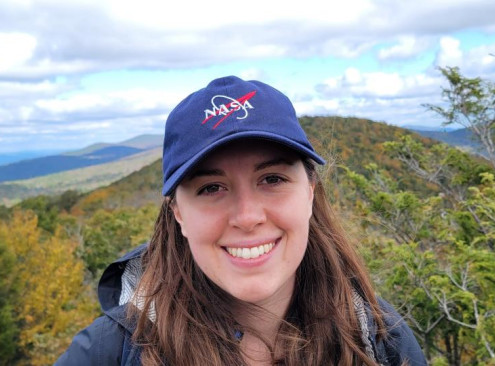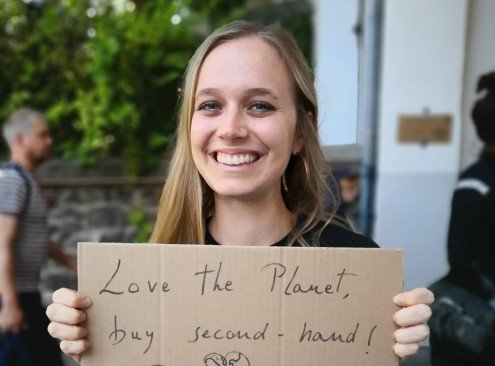© Pint of Science, 2025. All rights reserved.
After navigating the depths of the oceans, we will look up to the sky and far beyond! The NASA Langley team will bring us through a journey in which we land on the Moon, change our minds and try to understand how to burn the Moon to reach farther planets, and, finally, learn how to protect our space endeavours from he invisible and intangible cosmic radiation!
Recent Lunar Science Mission Success
Olivia Tyrrell
(Researcher - NASA's Langley Research Center )
The recent successful lunar landing mission from the Firefly Aerospace Blue Ghost lander carried a suite of NASA science instruments to the Moon, landing on March 2nd, 2025. The payloads operated successfully during the 14-day mission and returned valuable and rich data from the lunar surface which will improve our understanding of the lunar environment and make future landings safer. This talk will present an overview of the mission as well as past and future planned NASA missions, and discuss their importance for future space exploration and scientific development.

Should We Burn the Moon?
Chris Jones
(Mission Manager - NASA's Langley Research Center)
Space travel requires a lot of fuel: most of a rocket is just stuff that burns as you go. If you could get that fuel in space, instead of carrying it from Earth, you'd be able to go much farther. One possible source of that fuel is the Moon. However, getting it from the Moon isn't easy, and whether that's better than getting it from Earth is a complex question. Come hear a less complex answer.

Cosmic Radiation: our Invisible Obstacle in Space
Francesca Luoni
(Researcher - NASA's Langley Research Center )
The lives of space explorers are endangered by the radiation emitted by magnetic storms on the Sun and by the explosion of much larger stars called supernovae, in our galaxy and beyond. Radiation is everywhere: in the bananas we eat, in our basements, and even in the people we spend time with! Nevertheless, humanity has evolved for millions of years to be resistant to radiation levels on Earth. In deep space, the radiation is too much. How to protect our space heroes?

Map data © OpenStreetMap contributors.